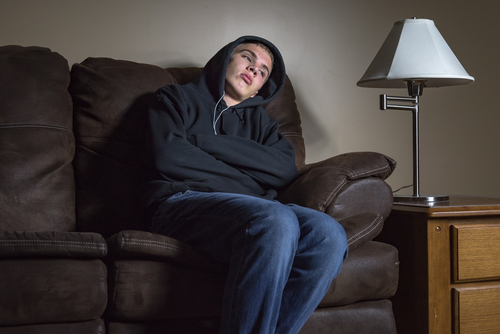How to Recognize Depression in Your Teenager

There may be times that you wonder why your teenager does not want to participate in the activities they once were devoted to. They may be exhibiting some typical teenage moodiness, or they could be very easily suffering from depression. One in five teenagers suffer from some form of depression without knowing that they had the diagnosis.
Anhedonia, or the inability to feel pleasure, is one of the more common characteristics that people exhibit which gives the indication for depression to be the cause. This can be hard to differentiate from the emotional and dramatic state that is the typical rite of passage for teenagers who are experiencing puberty. Depression is something different from this passive aggressive teenage behavior.
To understand the difference outside the scope of the teen's demeanor and their attitude can be brought to light to you as the parent if you are able to recognize the basic signs and symptoms of depression and how they can affect your family.
Risk factors for depression in teens
- Genetics can play a part in mood disorders, so if you or another family member has been treated for depression, it can be very likely that your child could be at risk as well.
- Trauma, such as death, abuse, divorce, bullying, failing in a class, or a break up, can assist in letting depression set in.
- A learning disability can make a teen feel like they are unintelligent to cause embarrassment making depression occur.
- Family issues can cause children who once felt protected by their parents begin to experience the let down and sorrow.
- Chronic illness can be debilitating and make the teenager feel they have nothing to live for.
Symptoms of depression in teens
- Anger
- Frequent outbursts
- Retreating the nurse's office
- Sadness
- Extreme fatigue
- Change in sleep patterns
- Change in routine
- Lack of concentration
- Anhedonia
- Drop in school grades
- Risky behaviors
- Substance abuse
- Isolation
- Anxiety
- Eating disorders
If you or an adolescent you know needs to get help for drug or alcohol abuse, Stonewater Adolescent Recovery Center can give you the guidance that you deserve. Establishing a strong network of family and community can reinforce practices for living substance free.
Call us today to start living in your recovery: 662-598-4214


